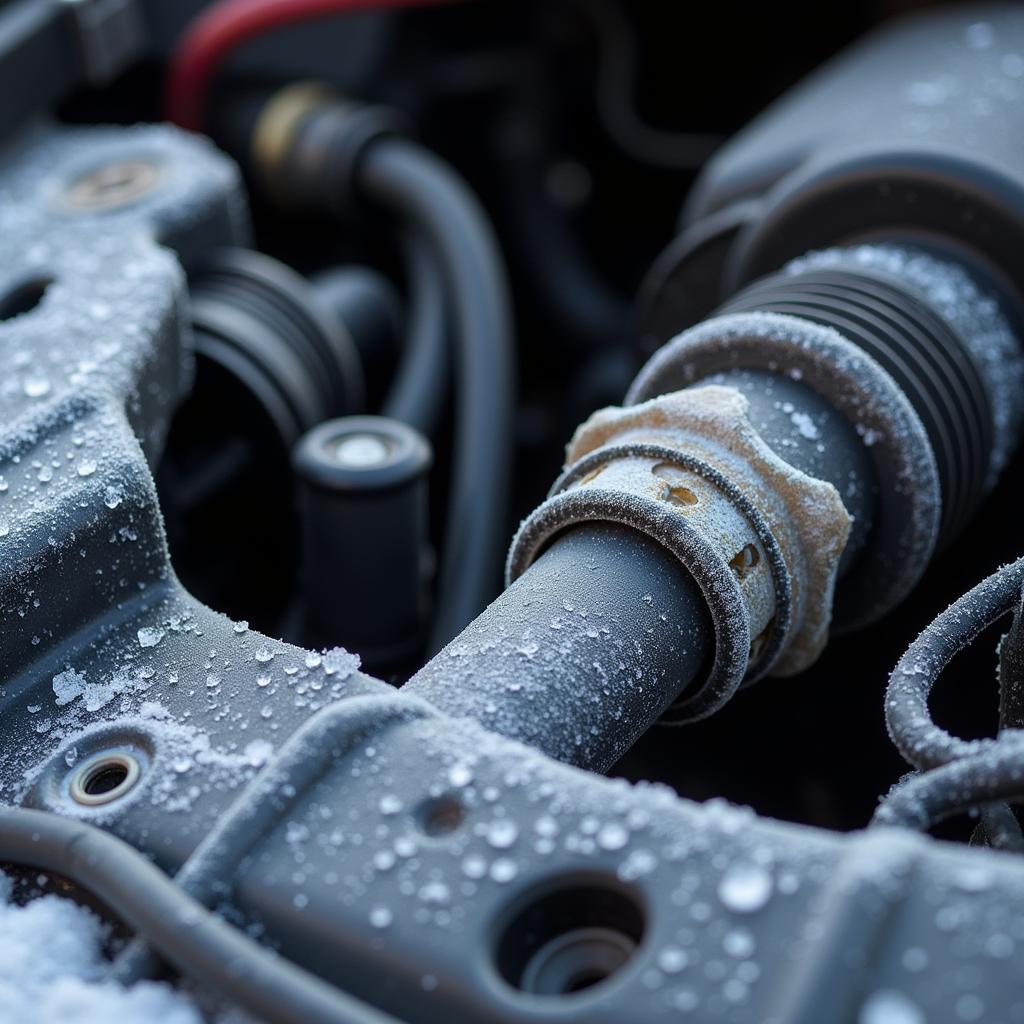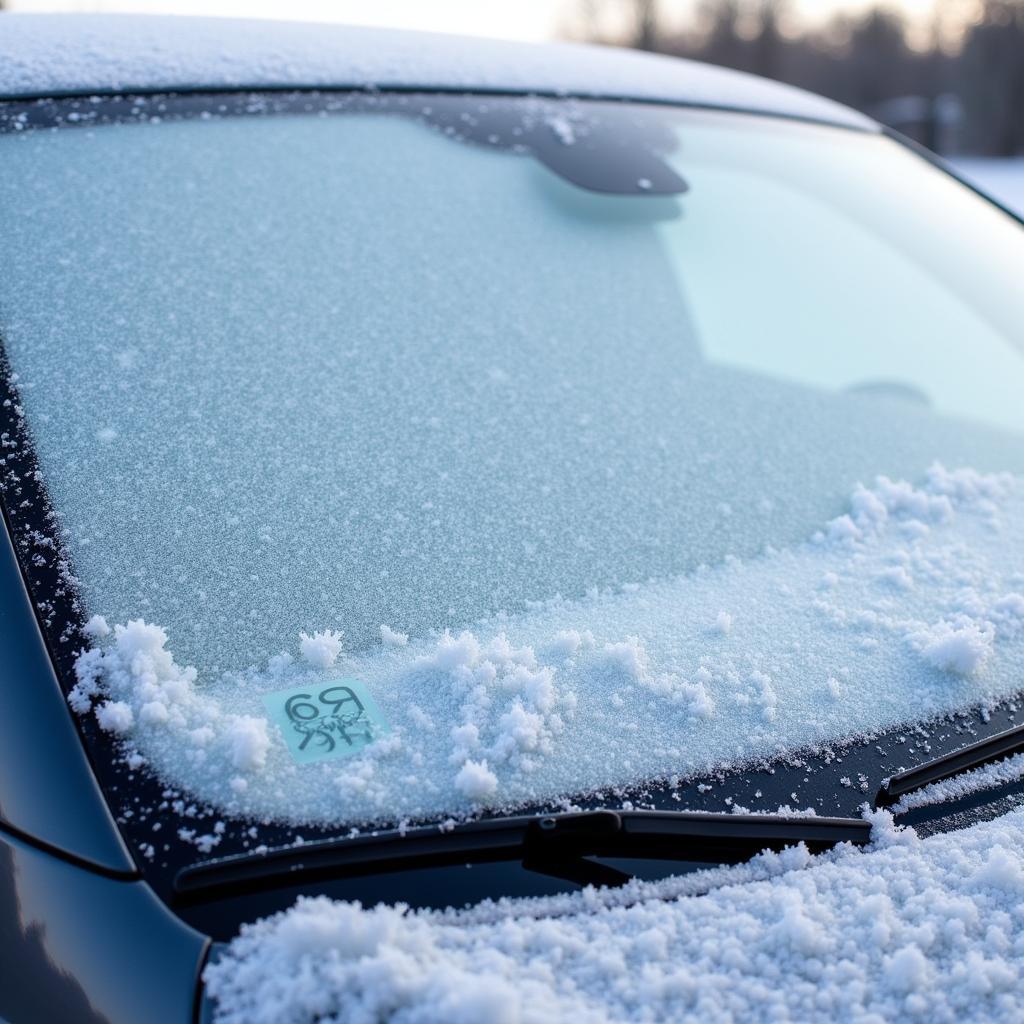Winter can be a tough time for your car. Cold temperatures can cause a variety of problems, from a sluggish battery to frozen fuel lines. But don’t worry, with a little preparation, you can keep your car running smoothly all winter long.
Understanding the Challenges of Cold Weather
When temperatures drop, the oil in your engine becomes thicker, making it harder for the engine to start. Batteries also lose power in cold weather, making it difficult to turn over the engine. Fuel can also freeze, blocking fuel lines and preventing your car from starting.
Common Cold Weather Car Problems
Here are some of the most common Cold Weather Car Problems and how to prevent and fix them:
1. Battery Problems
Why Batteries Fail in Cold Weather
Cold weather can cause your battery to lose power, making it difficult to start your car. This is because the cold slows down the chemical reactions inside the battery, reducing its ability to provide power.
How to Prevent Battery Problems
- Check the Battery: Have your battery tested regularly, especially before winter. Make sure the terminals are clean and corrosion-free.
- Charge the Battery: If your battery is low, charge it up before winter.
- Keep the Battery Warm: If possible, park your car in a garage or sheltered area to keep the battery warm.
How to Fix a Battery Problem
If your battery is dead, you’ll need to jump start it. Connect the positive (red) cable to the positive terminal of your battery and the other end to the positive terminal of the good battery. Then, connect the negative (black) cable to the negative terminal of the good battery and the other end to a metal grounding point on your car, away from the battery.
2. Engine Problems
Why Engines Have Trouble Starting in Cold Weather
Cold weather can also cause problems with your engine’s ability to start. The oil becomes thicker, making it harder for the engine to turn over.
How to Prevent Engine Problems
- Use the Correct Oil: Make sure you’re using the correct oil for the temperature.
- Warm Up the Engine: Let your engine warm up for a few minutes before driving, especially on very cold days.
How to Fix Engine Problems
If your engine is struggling to start, try using a block heater or an engine pre-heater. These devices plug into an electrical outlet and warm up your engine before you start it.
3. Fuel System Problems
Why Fuel Can Freeze in Cold Weather
Fuel can freeze in cold weather, blocking fuel lines and preventing your car from starting. This is especially common with diesel fuel, which has a lower freezing point than gasoline.
How to Prevent Fuel System Problems
- Use Winter Fuel: During the winter months, use winter-grade fuel, which has additives that prevent it from freezing.
- Keep Your Gas Tank Full: A full gas tank helps to prevent fuel from freezing.
How to Fix Fuel System Problems
If your fuel lines are frozen, you’ll need to thaw them out. You can do this by using a hair dryer, a heat gun, or a warm cloth.
 Frozen fuel line in a car
Frozen fuel line in a car
4. Tire Problems
Why Tire Pressure Changes in Cold Weather
Cold weather can cause your tire pressure to drop. This is because the air inside your tires contracts in cold temperatures.
How to Prevent Tire Problems
- Check Your Tire Pressure: Check your tire pressure regularly, especially before winter.
- Use Winter Tires: If you live in an area with heavy snowfall, consider using winter tires, which are designed for better traction in snow and ice.
How to Fix Tire Problems
If your tire pressure is low, you’ll need to inflate your tires to the proper pressure. Check the sticker on your driver’s side door jamb for the recommended tire pressure for your vehicle.
5. Windshield Problems
Why Windshields Can Frost Up in Cold Weather
Cold weather can cause your windshield to frost up, making it difficult to see.
How to Prevent Windshield Problems
- Use a Windshield Cover: Cover your windshield with a cover when you’re not driving. This will help to prevent frost from forming.
- Use a Defroster: Use your car’s defroster to clear frost and ice from your windshield.
How to Fix Windshield Problems
If your windshield is frosted up, use a scraper to remove the ice and frost. You can also use a defroster to help melt the ice.
 Car windshield covered with frost
Car windshield covered with frost
6. Other Cold Weather Car Problems
Do Hybrid Cars Have Problems in Cold Weather?
“Hybrid cars can have problems in cold weather, such as reduced battery range and slower performance. This is because the battery loses efficiency in cold temperatures,” says John Smith, Automotive Engineer.
Does Cold Weather Affect Car Sensors?
“Cold weather can cause problems with car sensors. This is because the cold can affect the sensor’s ability to detect the correct readings,” says Mary Jones, Certified Automotive Technician.
How to Deal with Cold Weather Car Problems
“The best way to deal with cold weather car problems is to be prepared,” says Mark Johnson, Automotive Mechanic. “By taking the time to check your car before winter, you can help to prevent many common problems. And if you do experience a problem, you’ll be better prepared to handle it.”
Conclusion
Winter can be tough on your car, but with a little preparation, you can keep it running smoothly all season long. Check your battery, use the right oil, and make sure your fuel lines are clear. And if you’re experiencing a problem, don’t hesitate to contact your local mechanic for help.
AutoTipPro can help you with all your cold weather car problems. We’re a team of experienced automotive technicians who can help you diagnose and repair any problem you may encounter.
Contact us today for a free consultation.
Phone: +1 (641) 206-8880
Office: 500 N St Mary’s St, San Antonio, TX 78205, United States
FAQ
- What are the most common car problems in cold weather? Some of the most common car problems in cold weather include battery problems, engine problems, fuel system problems, tire problems, and windshield problems.
- How can I prevent my car battery from dying in the cold? You can prevent your car battery from dying in the cold by checking the battery regularly, charging it if necessary, and keeping it warm.
- How can I prevent my car from freezing up in cold weather? You can prevent your car from freezing up in cold weather by using winter-grade fuel, keeping your gas tank full, and using a windshield cover.
- Should I use a block heater in cold weather? You should use a block heater if you live in an area with very cold temperatures. A block heater will help to warm up your engine before you start it, making it easier to start in the cold.
- How can I tell if my car sensors are working properly in cold weather? If your car sensors are not working properly in cold weather, you may notice problems with your engine performance, fuel economy, or emissions. You should have your car diagnosed by a mechanic if you suspect a sensor problem.
- What should I do if my car won’t start in cold weather? If your car won’t start in cold weather, try jump-starting it, using a block heater, or checking your fuel lines for freezing.
- What should I do if my windshield is frosted up in cold weather? If your windshield is frosted up in cold weather, use a scraper to remove the ice and frost. You can also use a defroster to help melt the ice.




Leave a Reply